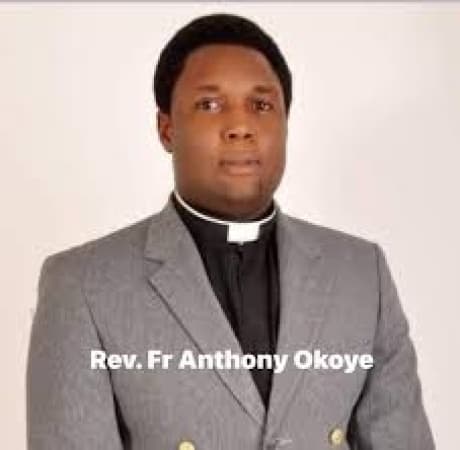
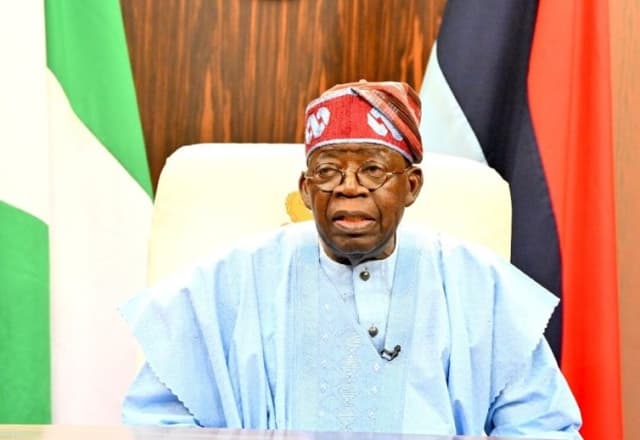
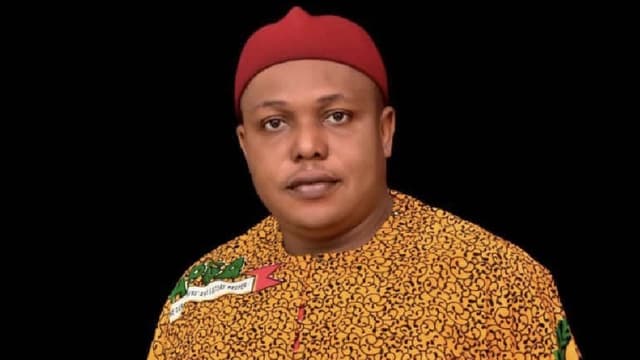
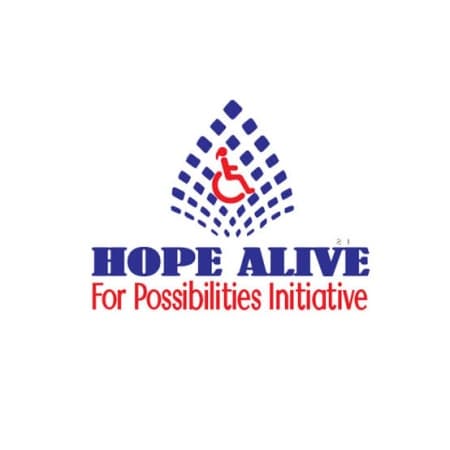



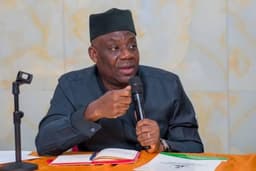
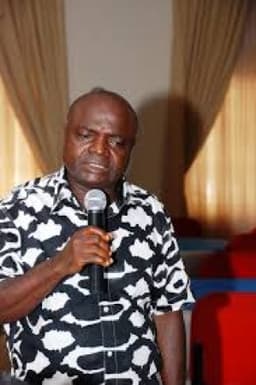

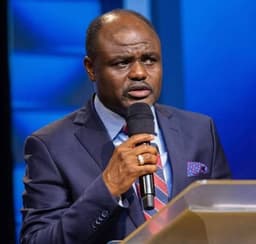

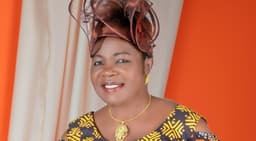
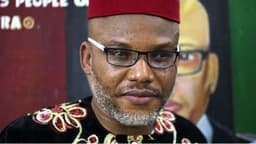




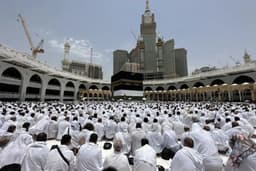
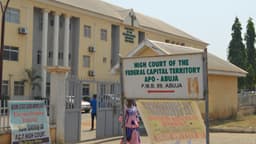
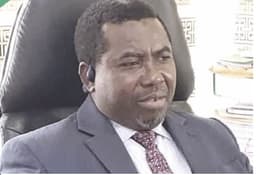



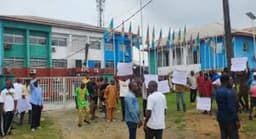
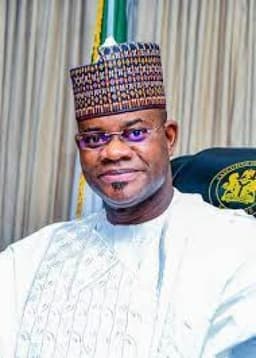

NEWS EXPRESS is Nigeria’s leading online newspaper. Published by Africa’s international award-winning journalist, Mr. Isaac Umunna, NEWS EXPRESS is Nigeria’s first truly professional online daily newspaper. It is published from Lagos, Nigeria’s economic and media hub, and has a provision for occasional special print editions. Thanks to our vast network of sources and dedicated team of professional journalists and contributors spread across Nigeria and overseas, NEWS EXPRESS has become synonymous with newsbreaks and exclusive stories from around the world.

Prof Pat Utomi, Convener of the Nigerian Shadow Government
A Federal High Court in Abuja will on Monday (September 29) deliver judgment in a suit filed by the Department of State Services (DSS) against Prof. Pat Utomi over his alleged plan to establish what he called, “a shadow government” in the country.
Justice James Omotosho adjourned the matter since July 10, after entertaining arguments from lawyers to parties and listening to the opinions of the seven amici curiae invited by the court.
In the suit marked: FHC/ABJ/CS/937/2025, the DSS is contending that the move by Utomi was intended to create chaos and destabilize the country.
The DSS is of the view that, not only is the planned shadow government an aberration, it constitutes a grave attack on the Constitution and a threat to the democratically-elected government that is currently in place.
It expressed concern that such a structure, styled as a ‘shadow government,’ if left unchecked, may incite political unrest, cause intergroup tensions, and embolden other unlawful actors or separatist entities to replicate similar parallel arrangements, all of which pose a grave threat to national security.”
The plaintiff wants the court to declare the purported “shadow government” or “shadow cabinet” being planned by Utomi and his associates as “unconstitutional and amounts to an attempt to create a parallel authority not recognized by the Constitution of the Federal Republic of Nigeria, 1999 (as amended).”
The DSS is also seeking a declaration that “under Sections 1(1), 1(2) and 14(2)(a) of the Constitution, the establishment or operation of any governmental authority or structure outside the provisions of the Constitution of the Federal Republic of Nigeria, 1999 (as amended), is unconstitutional, null, and void.”
It equally wants the court to issue an order of perpetual injunction, restraining Utomi, his agents and associates “from further taking any steps towards the establishment or operation of a ‘shadow government,’ ‘shadow cabinet’ or any similar entity not recognized by the Constitution of the Federal Republic of Nigeria, 1999 (as amended).”
In his final submission on July 10, plaintiff’s lawyer, Akinlolu Kehinde (SAN), argued among others that Utomi lacked the power to establish any shadow government which is not supported by any provision of the Constitution.
Kehinde said the plaintiff believes the shadow government is meant to subvert its democratic rights, arguing that no matter how sentimental the concerns of Utomi and his associates are, no group is allowed to establish any organization against the authority of the government.
He added: “The right to express one’s freedom is granted, but there is a limitation where the exercise of such right brings tension against the government of the day.
“We must not allow the cat to get out of the cage before chasing it,” he said, noting that the potential danger of such action was grave.
Kehinde said: “We know how Boko Haram started, and even IPOB. We must not wait for crisis to happen before we act.”
He urged the court to dismiss Utomi’s preliminary objection because the DSS brought the suit based on its constitutional rights.
Responding, Utomi’s lawyer, Professor Mike Ozekhome (SAN) urged the court to dismiss the suit.
Ozekhome said what the plaintiff sought to do was to seal the lips of Nigerians from speaking against the present government.
“They are trying to hand my lord strong chains, stronger than those that dehumanized slaves over 500 years ago, to chain Nigerians.”
He told the court not to accept such because it had the effect of promoting a totalitarian government.
“The court should not allow it so that democracy will not go down the drain,” he said.
He questioned why the DSS should be afraid of an initiative launched virtually, which aimed to serve as a credible opposition to the current administration.
According to him, it focuses only on scrutinizing government actions, policies and proffering solutions in sectors such as law, education, etc., and they are saying it is to overthrow the government.
Ozekhome said the shadow government is only made up of like-minded individuals and an ombudsman.
“It does not have a legislature, executive, ministers or judiciary like Nigeria or the United States,” he said.
Ozekhome said there are crimes like kidnapping, banditry, terrorism, which the country should focus on as criminal offences.
He submitted that since the security outfit is only afraid of the term “shadow government” without evidence, he said the suit is a waste of time.
“They are trying to criminalize an ordinary shadow government. No Nigerian has proved to the plaintiff that he (Nigerian) is confused, so there is no evidence that the group will cause a crisis,” Ozekhome said.
One of the amici curiae, Joseph Daudu (SAN), in his opinion, said the issue with the “shadow government” was not about what they had done, but the nomenclature.
“It is about what the people think when such a government is mentioned.
“Such a name might create an inimical situation where people bypass the National Assembly and bring down the activities of the legitimate government from the comfort of their bedrooms.
“It is strange and fraught with endless crisis, my lord, it is unconstitutional,” he said.
On fundamental rights, he said: “No right is being shackled. Utomi has his right to criticize, but when he gathers people whom the constitution does not know the process involved, it becomes excessive and inappropriate if the fundamental rights he seeks to enforce are not tied to legal, lawful, and constitutional issues.”
Another of the amici curiae, Joe Gadzama (SAN) said there are two types of constitutional breaches, the first of which is speculative while the other is actual.
Gadzama stated that speculative breach occurs when the government alleges there is a breach of the Constitution, adding that those behind the shadow government have not done anything to warrant the filing of the suit.
He said granting the plaintiff’s request “will stifle the enthusiasm of the people in the exercise of their rights and expression.”
Gadzama added that if the issues were criminal, the DSS would have acted, noting: “Yes, there could be breaches, but the court is the last hope of the common man.”
He argued that nomenclature should not be the problem, adding: “The dictionary meaning of a government could mean an association or organization.
“Government does not only mean Nigeria, UK, or USA. We are practising people-oriented democracy, and we must always derive our powers from the people.
“We should always listen to them,” he said, citing Section 1(2) of the 1999 Constitution, which, he said, points to when a group attempts to take over government.
He said that groups such as Boko Haram openly say they have taken control, “but there is no evidence that the shadow government has taken any control.”
He said Section 40 allows peaceful assembly and “that they are not known to the ruling government does not mean they have done anything wrong.”
Mrs. Miannaya Essien (SAN), another of the amici curiae, said the character and characteristics of a thing are what make it what it is, and not what it claims to be.
“If I tell you that I am a cat, does it mean I am a cat? Even if I roar and continue to say I am a lion, it does not remove the fact that I am human.
“Therefore, the use of those expressions do not make them wrong,” she said.
She urged the court to look at the law and assess the actual activities of the “shadow government” before taking a decision.
On his part, former President of the Nigerian Bar Association (NBA), Yakubu Maikyau (SAN) said although the group is not recognized by the government, it is a structure known to others.
“As a citizen, actions must be kept within the ambit of the law,” he said.
Maikyau added that Section 45 of the 1999 Constitution places a limit on rights, which he said are not absolute.
He commended the DSS for not taking the law into its own hands but bringing the matter to court.
He said the “shadow government” had existed since 2008, towards 2002, about 15 years without registration until 2023.
“Yet, its activities are not supported by the authorities,” he said.
In his opinion, Professor Ademola Popoola of the Obafemi Awolowo University, said the origin of the term “shadow government” can be traced to 1910 when the phrase first attracted scholarly attention.
Prof. Popoola, whose opinion was presented in court by Ahmed Raji (SAN), said “it was normalized around 1920 and became popular around 1960.”
He added that based on Popoola’s research, a “shadow government” is an established faction of a parliamentary system, and not permitted in a country like Nigeria.
Prof. Popoola said: “Even if it were allowed, it would be by a political party, not a person,” noting that human rights are not absolute.
He added: “You cannot hide under a shadow government, which is not recognized by the 1999 Constitution, to confuse the public.
“Utomi is a fantastic Nigerian. He can do this on his own, not as a group,” he said. (The Nation)